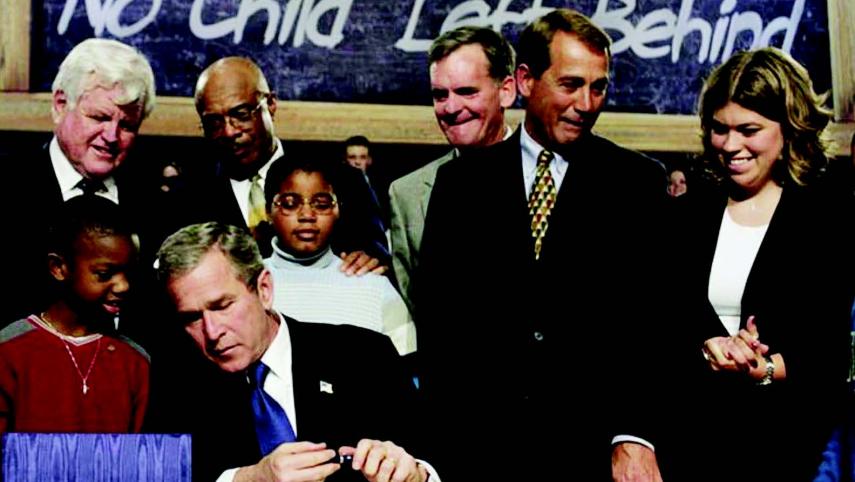No Child Left Behind Unites and Divides

FLASHBACK: JANUARY 8, 2002
The law enjoyed early bipartisan support. “I think what’s important today is that we have a president that wants to make this a strong priority in education,” Senator Edward Kennedy (D-MA) said during the White House signing ceremony. “And I think we have those that have leadership positions in the House and Senate that want to work with him and get something meaningful done.”
NCLB rode a wave of early support. The bipartisan Citizens’ Commission on Civil Rights liked that stringent accountability measures would finally be mandated under the law.
By 2004, President Bush announced that all 50 states had approved accountability plans under NCLB; when he took office in 2001, only 11 states were in full compliance with federal standards.
But that level of support gradually faded as supporters and critics of the law became more combative. In 2003, a widely publicized poll showed that nearly half of the nation’s superintendents and school principals thought the law aimed to undermine public schools.
By 2010, the stringent and relatively inflexible standards put in place by NCLB had created a culture of corruption among school district administrators, who were pressured to meet aggressive performance standards—known as Adequate Yearly Progress. Nowhere was this as widespread as in Atlanta, where 44 schools and 178 teachers and principals had been falsifying student test scores for 10 years. Other highly visible cheating incidents have been reported in Washington, D.C., Baltimore, New York City, Los Angeles, Miami, Orlando and Philadelphia.
Now, both parties in the capital agree changes are necessary—changes that will be part of the NCLB authorization process slated to begin later this year.